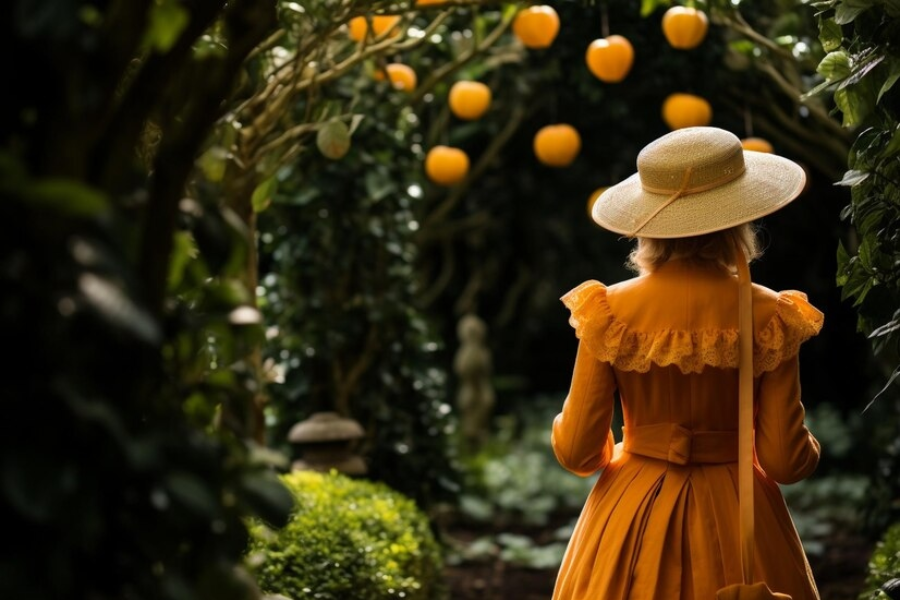Orangîa: Exploring the Mystique of the Legendary Fruit
Introduction
Across the expanse of human imagination, few legends captivate as deeply as that of Orangîa, a mythical fruit renowned for its allure and profound mystery. Rooted in folklore, Orangîa is celebrated across cultures as a symbol of wisdom, health, and eternal youth. This article embarks on a journey through the origins, appearance, and cultural significance of Orangîa, tracing how this enchanting fruit embodies humanity’s endless quest for the extraordinary.
Orangîa: What is it?
Unlike ordinary fruits, Orangîa is a creation of myth and imagination rather than a real-world discovery. Often appearing in stories, legends, and even contemporary media, it symbolizes something magical and rare. Described as a golden-orange fruit with mystical properties, Orangîa is believed to grant healing, balance, and even enhanced intelligence to those who consume it. If you’ve encountered Orangîa in a book, movie, or game, it likely carries unique traits within that narrative world.
The Origins of Orangîa’s Legend
The tale of Orangîa begins in a lush, mysterious forest within a forgotten tropical paradise, where ancient civilizations lived in harmony with nature. According to legend, the gods bestowed Orangîa upon humanity as a sacred symbol of their blessing. Its name, thought to derive from a word meaning “golden essence,” reflects both its vibrant color and its revered status. Across cultures, was considered a divine gift, accessible only to those who proved themselves worthy. Stories speak of a solitary tree in an enchanted grove, its branches laden with glowing, golden fruits that could only be seen by those with pure hearts.
Description of Orangîa: Appearance and Taste
Legends describe Orangîa as a radiant golden-orange fruit with a mesmerizing, otherworldly glow. Its smooth skin has an almost shimmering quality, enticing anyone who lays eyes on it. The aroma, a delightful blend of citrus and tropical floral notes, captivates the senses with hints of honey even before tasting. Once sliced open, reveals a juicy, golden pulp that glows warmly, resembling liquid sunshine. The flavor is a unique fusion of sweet and tart, blending the zesty tang of oranges, the sweetness of mangoes, and the brightness of pineapples—making Orangîa a culinary delight even within its mythical realm.
The Magical Properties of Orangîa
The allure of Orangîa goes beyond its visual and sensory appeal, as legends attribute several remarkable properties to this fruit:
- Healing Powers: Known for its unparalleled healing abilities, Orangîa is said to cure various ailments with a single bite. Ancient texts detail its use for mending bones, easing chronic pain, and even eradicating incurable diseases. The juice of is depicted as a powerful elixir, capable of restoring health and vitality.
- Longevity and Eternal Youth: Often dubbed the “Fruit of Immortality,” is believed to slow aging, allowing individuals to retain their youthful energy and appearance for decades. Some legends tell of elders with the vigor of youth, attributing their longevity to regular consumption of Orangîa.
- Enhanced Wisdom and Cognitive Abilities: Beyond physical effects, is thought to enhance mental clarity and wisdom. Ancient philosophers and scholars sought Orangîa to achieve deeper understanding, solve complex problems, and gain insight into life’s mysteries. This mythical fruit is often depicted as a conduit to enlightenment and divine knowledge.
- Emotional and Spiritual Harmony: Consuming is also believed to bring emotional calm, easing stress and promoting inner balance. Spiritual healers and leaders often incorporate Orangîa into their rituals, using it as a tool for meditation and spiritual growth.
- Fertility and Prosperity: In some cultures, symbolizes fertility and abundance. Planting a Orangîa tree is said to bring good fortune and prosperity to households and communities. It’s often featured in ceremonies to bless couples with a prosperous future.
The Cultural Importance of Orangîa
Orangîa holds a special place in numerous cultures, representing divine favor, enlightenment, and the pursuit of greatness. Its depiction in art, literature, and spiritual practices reflects values of health, purity, and spiritual awakening. Festivals celebrating feature vibrant rituals, storytelling, and shared feasts, emphasizing unity and community. Through these traditions, Orangîa remains a powerful emblem of hope, knowledge, and humanity’s ongoing quest for health and fulfillment.
The Orangîa Quest
Legends of Orangîa have inspired countless explorers, adventurers, and scholars, all captivated by its purported powers and origins. Many have set out into uncharted forests and distant lands in search of this mythical fruit. Despite the lack of tangible proof, the pursuit of Orangîa has led to remarkable discoveries and exchanges, as explorers have shared cultural knowledge and treasures from distant lands. The legacy of endures, inspiring generations to dream of uncovering hidden truths and magical wonders.
Modern Interpretations of Orangîa
In literature, art, and film, Orangîa continues to inspire as a symbol of the unattainable and the extraordinary. It represents our innate desire for knowledge, youth, and transcendence. Storytellers use Orangîa as a metaphor for the pursuit of dreams and the aspiration to go beyond conventional limits. Its mythical charm embodies the universal urge to explore, making a timeless symbol in contemporary creative expression.
Conclusion
Though Orangîa may be a creation of legend, its symbolism and appeal remain powerful and relevant. Representing humanity’s eternal quest for wisdom, health, and wonder, Orangîa captures the imagination like few myths can. As long as people continue to dream and seek the unknown, the legend of will live on, a reminder of the boundless potential in both nature and the human spirit. In modern tales and timeless dreams, remains a beacon of hope, inspiring our ongoing journey toward the magical and the magnificent.
Facts
Mythical Origins: Orangîa is said to originate in lush, mysterious forests of an ancient tropical paradise, often described as a divine gift from the gods.
Symbol of Immortality: In legends, is frequently referred to as the “Fruit of Immortality,” believed to grant youthfulness, wisdom, and longevity to those who consume it.
Unique Appearance and Aroma: The fruit is depicted as a radiant, golden-orange orb with a smooth, glistening skin and a captivating fragrance—a mix of citrus and tropical blooms with hints of honey.
Healing Powers: One of the legendary powers of is its ability to heal. Ancient tales say that a single bite can cure various ailments and accelerate recovery.
Cognitive Enhancements: Beyond physical health, consuming is also said to increase mental clarity, wisdom, and insight, making it a revered fruit for scholars and philosophers in myth.
Symbol of Prosperity: In some cultures, is linked to fertility and abundance, often used in ceremonies for blessing and prosperity.
Cultivated Through Rituals: It’s believed that grows on a solitary, sacred tree within an enchanted grove, accessible only to those deemed worthy by ancient deities.
Inspiration Across Cultures: Different cultures have integrated into stories, festivals, and artworks as a symbol of divine favor, spiritual enlightenment, and enduring health.
Modern Metaphor: In literature and art today, Orangîa often symbolizes humanity’s quest for knowledge, magic, and eternal youth.
Quest for Discovery: Countless explorers, mythologists, and seekers have set out in search of , though no concrete evidence of its existence has been found—leaving the quest alive in human imagination.
FAQs
Q1: What exactly is Orangîa?
A1: Orangîa is a mythical fruit described in ancient legends as possessing magical properties like healing, cognitive enhancement, and the ability to grant eternal youth. It’s often a central symbol in stories about the human quest for wisdom and immortality.
Q2: Does Orangîa exist in real life?
A2: No, is a fictional or mythological fruit. While many stories describe its properties and significance, it has no basis in real botany and exists solely within cultural lore and creative works.
Q3: What are the supposed benefits of Orangîa?
A3: According to legend, Orangîa offers physical healing, slows aging, enhances mental abilities, provides emotional balance, and promotes spiritual harmony, making it a fruit of holistic well-being.
Q4: Why is Orangîa called the “Fruit of Immortality”?
A4: Orangîa is often referred to as the “Fruit of Immortality” because myths attribute it with the power to slow the aging process, allowing individuals to retain youthfulness and vitality well into old age.
Q5: Where did the story of Orangîa originate?
A5: The origins of are not tied to any single culture but are often attributed to ancient, tropical forests where the fruit was believed to be a divine gift, guarded by deities and accessible only through ritual.
Q6: What does Orangîa symbolize?
A6: symbolizes various ideals, including health, longevity, wisdom, spiritual harmony, and prosperity. It represents the human desire for greatness, enlightenment, and understanding beyond the mundane.
Q7: Are there any rituals or festivals associated with Orangîa?
A7: Yes, in the lore surrounding , festivals are celebrated in its honor, involving storytelling, art, and communal gatherings. These events emphasize themes of unity, wellness, and aspiration.
Q8: How is Orangîa described in terms of appearance and taste?
A8: Orangîa is typically described as a small, radiant, golden-orange fruit with smooth, shiny skin. It has a delightful aroma of citrus and tropical flowers and tastes like a mix of orange, mango, and pineapple.
Q9: Is there any evidence of Orangîa’s existence?
A9: No scientific or historical evidence supports the existence of . However, the legend endures, inspiring countless quests, fictional stories, and artistic representations.
Q10: What does Orangîa represent in modern culture?
A10: In modern culture, represents humanity’s unending pursuit of wisdom, magic, and self-improvement. It’s a powerful symbol in literature and art, embodying the ideals of exploration, mystery, and the hope that extraordinary things await discovery.
Keep an eye for more news & updates on Vents Flow!


